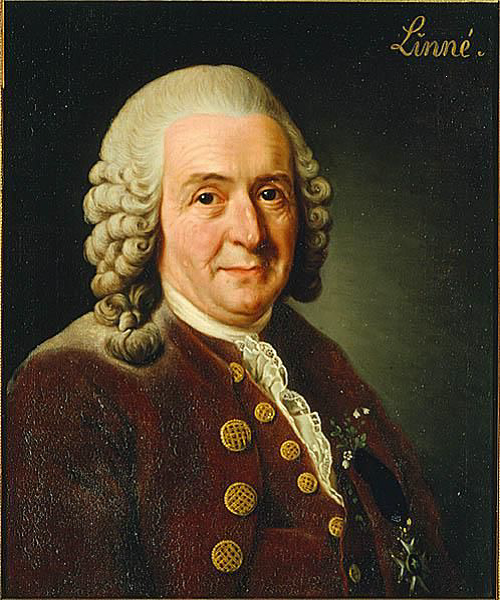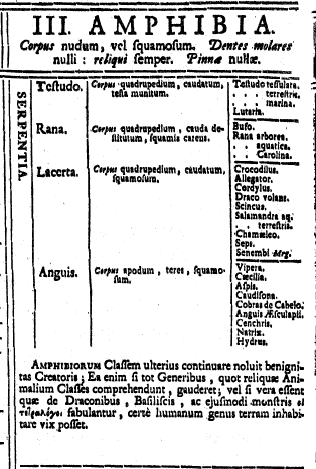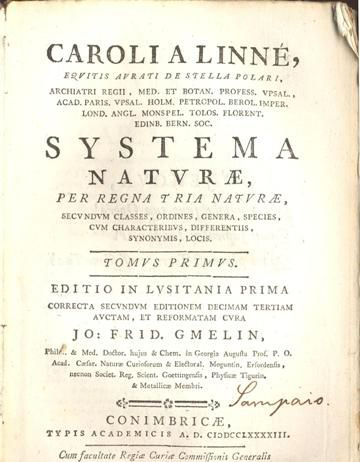
Carl Linnaeus, portrait by Alexander Roslin (1718-1793).
Carl Linnaeus (1707–1778) was a Swedish naturalist, whose name is referred to in different ways, including the Latinized Carolus Linnaeus, whose reputation is mainly due to his contribution to scientific classification, in particular to the development and systematization of binomial classification.
This system is now generally employed in biological sciences to classify species of living organisms. The first of the two Latin names, which will in principle consist of a Latinized form of the common name, concerns the genus, the second is an adjective that qualifies the species, denoting a characteristic, e.g., vulgaris, ordinary. As a curiosity, it should be noted that even today we hear the expression “Linnaeus thing” used in Portuguese, to qualify anything commonplace.

Detail of a Systema Naturae table

A prolific author, with more than seventy monographs and close to three hundred scientific articles, Linnaeus wrote his fundamental works in Latin, the lingua franca of science in the modern age. He also left several reports of his scientific trips and expeditions in Swedish. Linnaeus’ work is well represented in the Library-IDC of the Faculty of Medicine of Lisbon, with several editions of the time, others from later years, including some modern translations. For this issue of the Newsletter, we selected an edition of his Systema Naturae, the first in Portuguese, a work that marks the starting point of modern binomial nomenclature.
LINNÉ, Carl von, 1707-1778
Systema naturae, per regna tria naturae : secundum classes, ordines, genera, species…
/ Caroli a Linné. - Editio in Lusitania prima correcta… cura Jo. Frid. Gmelin. -
Conimbricae : Typis Academicis, 1793-1794. - 9 vol.
Reference of the Library-IDC of FML: RES. 2369 A
André Silva
Library and Information Area

